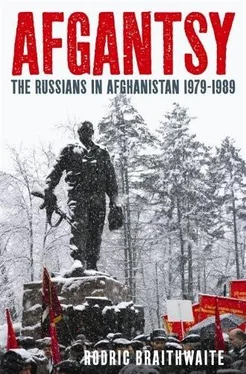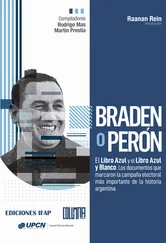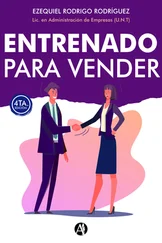The Party had always been determined to keep the army non-political by sacking (or, under Stalin, by shooting) any general they suspected of ‘Bonapartism’; and by allowing them a priority share of the country’s economic resources for the design and mass production of weapons to match those of the other superpower, the United States of America. Now things began to take an increasingly sinister turn as the army started to slip from the control of the politicians. By the autumn of 1990 Gorbachev was being noisily attacked in public and in private by the two ‘black colonels’, Alksnis and Petrushenko, who regularly accused him of outright treachery and got away with it. Party members wrote in to denounce him for betraying Eastern Europe and destroying the Soviet armed forces. In December 1990 fifty-three prominent personalities, including General Varennikov, who after Afghanistan had been appointed Commander of the Ground Forces, General Moiseev, the Chief of Staff, and Admiral Chernavin, the Commander-in-Chief of the Navy, called publicly for a state of emergency and presidential rule in conflict zones if constitutional methods proved ineffective. At the turn of the year twenty senior officers, including Akhromeev, by now a marshal, privately presented Gorbachev with an ultimatum setting out their grievances and demands. 4
All this was unprecedented: the military had never before intervened so openly in politics. But in January 1991 things moved from words to action. Thirteen people demonstrating in favour of national independence were killed by special forces troops in Vilnius, the capital of the Lithuanian Soviet Socialist Republic. The circumstances remained obscure. It was not clear how much, if anything, Gorbachev knew or approved of the action in advance. But among those who were involved in its planning and execution was General Varennikov.
The Coup against Gorbachev
The methods Gorbachev used to get out of Afghanistan and to pursue a more general reform may well have been the only ones likely to be effective. It was largely thanks to Gorbachev that the collapse of the Soviet Union and the rebirth of Russia were accomplished with comparatively little bloodshed. But the generals never forgave him for what they saw as the treachery which had led to the destruction of a great power. They firmly regarded him and his associates as traitors pure and simple. In his memoirs, Varennikov accuses Gorbachev of cowardice, demagogy, indecisiveness, ignorance of military and economic reality, and hostility towards the armed forces and the defence industry. He and his fellow senior officers came to believe that Gorbachev was an outright traitor. 5These extreme views may have borne little relation to the facts. But what many officers saw as Gorbachev’s lack of understanding or sympathy for the fighting men and his failure to treat them with the respect they believed they had earned in Afghanistan reflected a political reality, which was to dog Gorbachev for the remainder of his time in office.
By now Varennikov and other senior officers had had enough, and became actively involved in the attempted coup against Gorbachev in August 1991. 6On 17 August, the day before the coup itself, Varennikov attended a meeting called by Kryuchkov, the head of the KGB, to discuss what needed to be done to save the Soviet Union from political and economic collapse. Varennikov and others then flew down to the Crimea to see Gorbachev, who was on holiday there. When Varennikov told Gorbachev that, if he was not capable of running the country, he should draw the appropriate conclusion, the meeting broke up. Varennikov always regretted that no one had the necessary guts to remove Gorbachev on the spot. He himself went on to Kiev, where he tried to persuade the Ukrainian leaders to impose a state of emergency and to issue a warning that military force would be used to put down any attempt by local nationalists to exploit the situation. He failed, and much bloodshed was no doubt averted thereby.
The next day the plotters declared a national state of emergency and moved troops into Moscow. General Lyakhovski helped draw up plans for an assault on the White House, the seat of the Russian government and its defiant president, Boris Yeltsin. 7But the coup split both the army and the KGB: many officers of both organisations were appalled by the way their former colleagues had taken arms against a legitimate government. Among the defenders of the White House were Colonel Rutskoi, the Afghan veteran decorated after being shot down over Pakistan, and veterans from the special forces in their characteristic blue and white striped T-shirts. The defenders had no more than a handful of weapons, and the assault, if it had come, would have been over very quickly. But the order was never issued and the coup collapsed. It was the Afgantsy who efficiently marshalled the funeral procession for the three young men—one of them himself a decorated Afghan veteran—who were killed in a muddled shoot-out on the second night of the coup.
The generals too were riven by internal disagreements, and during the coup some of them found themselves on opposite sides of the barricades. The most tragic was Marshal Akhromeev. A man of high intelligence and integrity, with an ironic sense of humour, he was caught between two fires. No longer entirely trusted by his colleagues because he had done his best to serve Gorbachev as military adviser, sufficiently appalled by what was happening to his beloved military to sign the secret protest to Gorbachev at the end of 1990, he hanged himself on the collapse of the coup. Varennikov himself was arrested for his part in the coup and charged with treason. Yeltsin amnestied the plotters in February 1994. Varennikov refused to accept the amnesty, claiming that he had committed no treason: he had been defending the Soviet Union, which was the legitimate state at that time. He insisted on a trial and was acquitted.
The generals did not forgive Gorbachev’s successor, Boris Yeltsin, any more than they forgave Gorbachev. They gritted their teeth and stormed the White House on his orders during the parliamentary rebellion of October 1993. The official figures for casualties were 187 dead and 437 wounded. Unofficial sources put the dead as high as two thousand. It was the deadliest street fighting in Moscow since 1917. The orgy of political and official corruption and profiteering which accompanied Yeltsin’s economic reforms turned many of the generals against the whole idea of liberal democracy. It was not very surprising that many welcomed the more assertive and less democratic Russia championed by Vladimir Putin when he became President in 2000.
Now, disgusted by these events, many officers left the army altogether. They included some of the most famous soldier-bards: Viktor Kutsenko, Sergei Klimov, Vadim Dulepov, Vladimir Koshelev. One worked as a taxi driver, and when the 1991 putsch happened he drove from his Volga city to fight for Yeltsin on the barricades. Then he tried to go into commerce. But he did not like the corruption involved and went to work for the Moscow Metro instead. Another became a star of the music hall. One wrote philosophy. Another spent two years in prison for killing someone in a nightclub brawl. 8Igor Morozov resigned his commission in 1993, at the age of forty-one. He went to live in the Ryazan oblast, on the land where his father and ancestors had come from. By fair means or foul the local authority was trying to take over the land, systematically driving out people whose families had lived there for generations. All Morozov’s time and energy now went on fighting to keep his land and his house. 9
In the aftermath of the war in Afghanistan, the generals were sustained by their sense of military honour, and by the habits of thought of a professional life spent in the sequestered world of the military. But the conscripts who had borne the brunt of the fighting had no military tradition to fall back on. They had neither the time nor the energy to get mixed up in high politics. They were too busy trying to adapt to civilian life and to eke out a living in a country whose political and economic system had fallen apart, and whose citizens were themselves too traumatised by the collapse, and too bound up in their own struggle for everyday existence, to pay much attention to the problems of the returning soldiers.
Читать дальше












